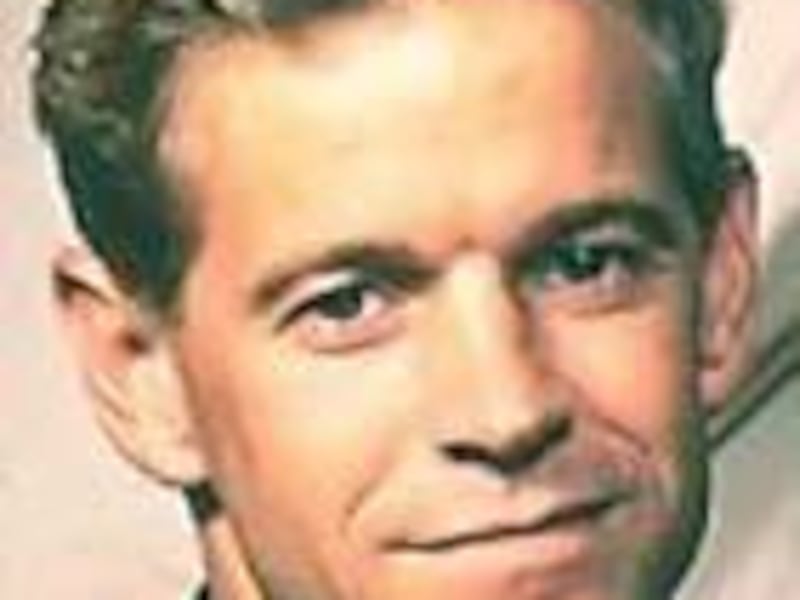ATHENS — For the first week of the Athens Olympics, he has been a fixture at the Olympic Indoor Hall where the gymnastics competition is taking place. When he isn't doing color commentary for Westwood One, NBC's radio arm for these Games, he's talking with Katie Couric on the "Today Show" set, or he's entertaining executives of the John Hancock Co., or he's giving interviews, posing for pictures and signing autographs.
Twenty years after he struck Olympic gold, Peter Vidmar is still mining it.
It's been five Olympiads now since Vidmar won two gold medals and a silver in his hometown of Los Angeles in 1984. He was a member of the winning U.S. men's gymnastics team and added a second gold medal in pommel horse when he scored a perfect 10. He almost got a third gold medal in the all-around, but lost by 25/1000ths of a point to Koji Gushiken of Japan.
Vidmar recalls that the 1984 all-around competition was so close that when he completed his final routine, he calculated the math quickly in his head and thought he'd won. When Katie Couric asked him how American Paul Hamm might feel if he won the Olympic all-around championship, Pete said, "I can tell you exactly how he'd feel. For about 10 seconds in 1984, until I realized my math was wrong, I had that feeling — and it was great."
Vidmar would have been the first U.S. male to win the men's Olympic all-around — a feat Hamm finally accomplished Wednesday night with Pete doing color commentary on the radio — which made settling for silver even more of a disappointment. But it's hard to imagine it making much of a difference in what has happened to his life ever since.
As a double Olympic gold medalist, Vidmar has spent the past 20 years conducting a clinic on how to turn gold into cash flow. He has taken his experience and turned it into his living.
Even by Olympic standards and even 20 years later, Vidmar's is a compelling story; a kind of combination "Karate Kid" and "Chariots of Fire." Too small for football and basketball, he turned his size, or lack thereof, into an advantage in a sport where 5-foot-6 is not a liability. When he was 12, he answered an ad in the local newspaper that said former Olympic gymnast Mako Sakamoto wanted to train future Olympic champions.
For 10 years, Vidmar did exactly what "Coach Mako" said he should do, with the notable exception of training on Sunday. Six days a week, he became intimate with the inside of gymnasiums, not emerging until the 1984 Games unfolded, fortuitously, in his own back yard.
After the Games, Peter packed those 11 years into a one-hour motivational speech that he discovered corporations loved. They also loved it when he brought along the pommel horse and demonstrated his perfect 10 on stage.
He hasn't relived that routine and given that speech a million times, but he's getting there. He averages 65 speeches a year. In 1996, the year of the first Olympics in America since Los Angeles, he spoke 160 times. At an average fee of $10,000 per speech, it's paid the mortgage and then some.
Pete and his wife, Donna, herself a former college gymnast, live with their five children in a house with a pool tucked into the foothills in Orange County, Calif., where Peter regularly indulges his post-Olympic obsession, bicycle racing. At 43, he rides in both mountain bike and road races, with a goal to someday ride in the masters nationals.
"I'm in my Walter Mitty phase; I'll never win anything big," he says.
But he is enjoying himself, and the cycling helps keep him in shape for the pommel horse routine, which doesn't get any easier. At 130 pounds, he weighs the same as he did in 1984.
Peter has also published a book, "Risk, Originality, Virtuosity," which I helped him write after first meeting him in Los Angeles at those 1984 Games.
During a recent break in the action at the Olympic Indoor Hall, I asked Pete how much harder it would have been in Los Angeles if he'd known that winning gold would ensure he wouldn't have to worry about what he was going to do the rest of his life.
"Oh, it's much better not to know," he said. "I'm really glad I didn't.
"That wasn't why I was doing gymnastics. That would have changed everything."
"And you never know when it will all end," he added. "It could end tomorrow. Maybe I've given my last speech. And who wants a 43-year-old with no skills to market? It's not like I know how to manage books or run a company."
In this life, there is always something to keep you motivated.
Lee Benson is in Athens to report on the 2004 Summer Games for Deseret Morning News readers. This is his ninth assignment to cover the Olympics. Please send e-mail to benson@desnews.com.


